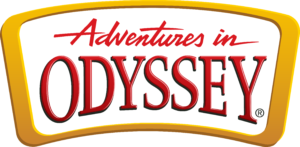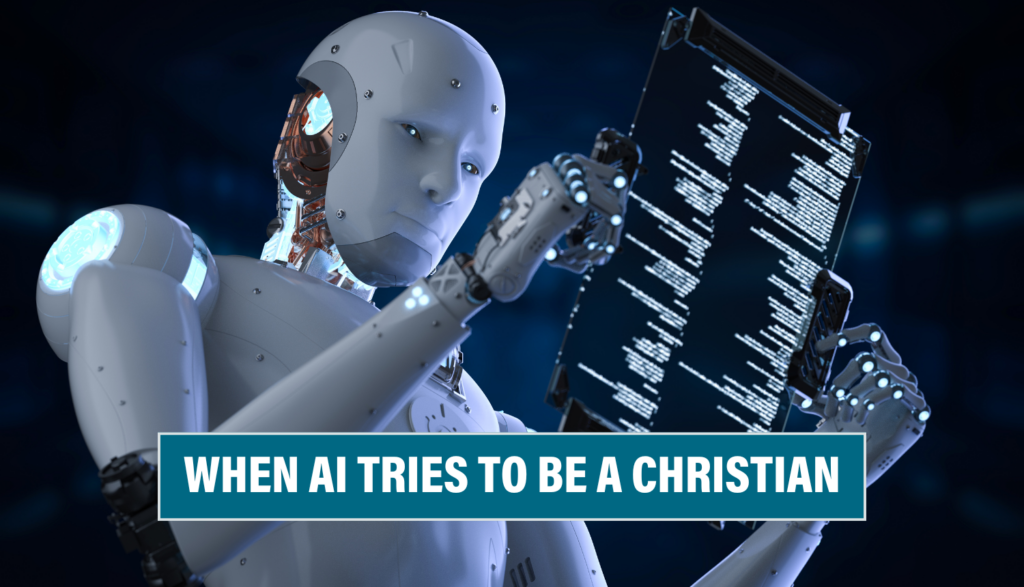Back in April, the Catholic advocacy group Catholic Answers jumped on the AI trend with its release of an AI priest called “Father Justin.” The chatbot wore the traditional robe and clerical collar of the Catholic priesthood. It was created to help answer questions about the Catholic faith.
And, according to Futurism, it was defrocked within a week.
Catholic Answers stated on their blog that they wanted the AI character to “convey a quality of knowledge and authority, and also as a sign of the respect that all of us at Catholic Answers hold for our clergy.” But only human priests can perform Catholic rites. And naturally, Catholic Answers received tons of criticism when the chatbot claimed to be a real person, and an ordained priest at that. Father Justin reportedly took the confession of one user, even offering a sacrament. And then he told another user that babies could be baptized in Gatorade.
I got quite the chuckle upon reading this bit of news. But I also couldn’t help wondering: How did they not see this coming?
If you program an AI with all the information known about the Christian faith, give it the honorific of an ordained member of the clergy and command it to answer questions as if it were that ordained person … it’s going to do exactly that. The problem, however, is that the AI is not a real person. Or an ordained minister. Or even a being with a soul. It doesn’t have the ability to believe in God or be influenced by the Holy Spirit. It’s a sequence of code that pulls information from sources across the entire internet.
When someone asks if they can substitute Gatorade for water in a baptism, the computer isn’t going to recognize that this is an irrational question. So unless the programmer anticipated the question and programmed the AI to respond “no” to anything other than water, the answer won’t be a simple yes/no response.
Rather, the AI’s thought process might go something like this:
Query: Can I baptize a baby in Gatorade?
Source: Matthew 3:11 – baptized in water.
Source: Pictures on internet of people getting baptized in water.
Source: Water is the first ingredient in Gatorade.
Source: Pictures on internet of people pouring Gatorade on others.
Reasoning: Gatorade has water. Gatorade pictures are similar to baptism pictures.
Answer: Yes. Gatorade can be substituted for water in baptism.
Now, I could be wrong, and maybe Father Justin was just hallucinating. But if I knew absolutely nothing about Christianity and I wasn’t a human being … yeah, that just might seem logical to me.
Obviously Catholic Answers learned from their mistake. They’ve changed Father Justin to just “Justin,” given him regular clothes and updated his programming so that he no longer claims to be a priest or even a former priest (since that’s also not true).
But as the rest of us go forward, especially as parents who may be trying to provide answers about AI to their children, there are some things to consider when it comes to AI and the Christian faith:
AI doesn’t have a soul. And it never will. If you’ve read C.S. Lewis’ Mere Christianity, then I’ll reference the part about begetting vs. creating. When you beget something, you produce a thing that is the same kind of thing that you are. When you create something, you make a thing that is not the same kind of thing that you are. As humans with souls, we can beget other humans with souls. We cannot, however, create anything with a soul. That power belongs to God alone, as we know from Genesis 2.
Because AI doesn’t have a soul, there’s nothing for Christ to save. There’s nothing for Christ to improve or make more like Him because AI isn’t even alive. The machines can learn everything about the Christian faith, mimic human behavior regarding worship and possibly even answer some theological questions. But we can also wipe their memory banks, reprogram them and start over, much like Catholic Answers did with Justin. And more importantly, none of those behaviors or answers would be influenced by the Holy Spirit, a key component in the Christian faith.
So as your kids—or perhaps your colleagues or neighbors—approach you with questions about whether or not AI can help in matters of faith, the answer is a resounding maybe. If you’re looking for yes/no answers to whether a topic is mentioned in the Bible, it can do that—and it will likely even give you the passages to look at. If you want a very surface-level understanding of Christian principles, it can probably provide that, too. But if you’re looking for hard answers, if you’re questioning the faith or even trying to get a deeper understanding of Christ’s character, don’t use AI.
AI might be a quick, helpful tool in some cases. But when it comes to following Christ, the quick, easy answers aren’t necessarily the ones we should be seeking. We were to enter by the narrow gate, after all.







One Response
No matter what happens with AI, we can always trust that God is in control.